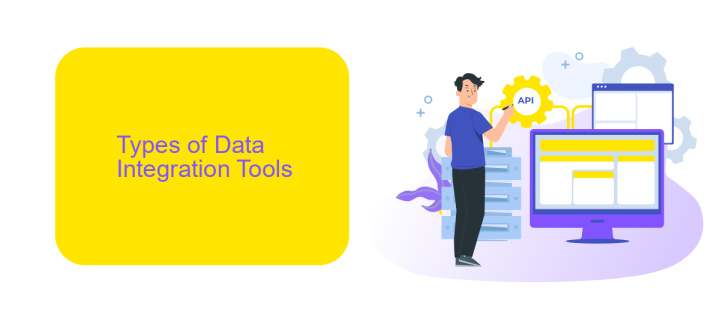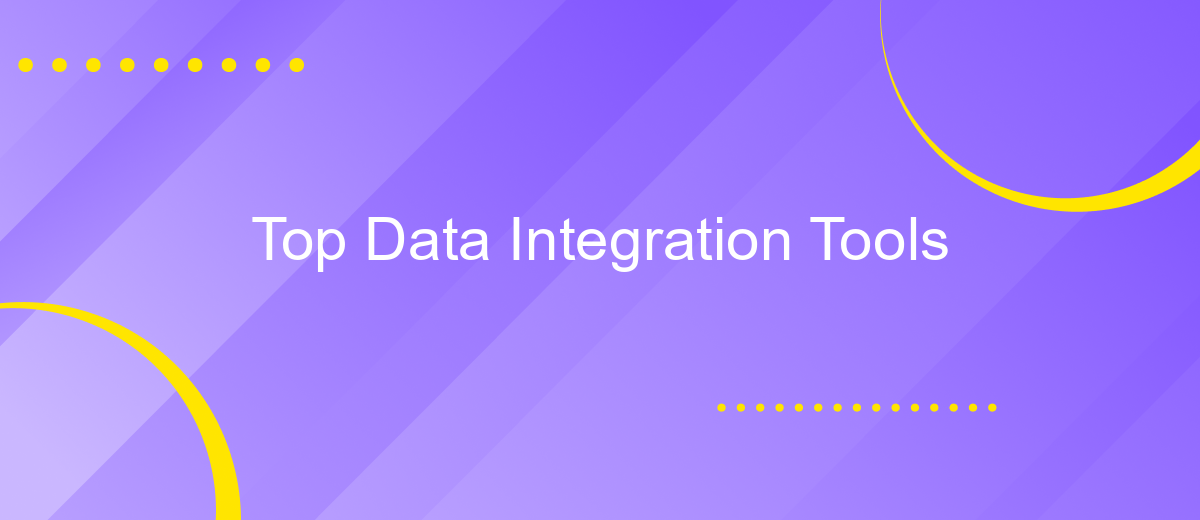Top Data Integration Tools
In today's data-driven world, seamless integration of diverse data sources is crucial for informed decision-making and operational efficiency. Top data integration tools offer robust solutions to consolidate, transform, and synchronize data across various platforms. This article explores the leading data integration tools that empower businesses to harness their data effectively, ensuring accuracy, accessibility, and actionable insights. Discover the best options to streamline your data processes.
Introduction
In today's data-driven world, integrating various data sources seamlessly is crucial for businesses to make informed decisions. Data integration tools play a pivotal role in combining data from disparate sources, ensuring consistency and accuracy. These tools help organizations streamline operations, improve data quality, and enhance overall productivity.
- Automated data synchronization
- Real-time data processing
- Scalability and flexibility
- Enhanced data security
- Comprehensive reporting and analytics
One of the leading tools in this space is ApiX-Drive, which offers a user-friendly interface for setting up integrations without the need for coding. ApiX-Drive supports a wide range of applications and services, making it easier for businesses to automate workflows and ensure data consistency across platforms. By leveraging such tools, companies can focus more on strategic initiatives rather than getting bogged down by manual data management tasks.
Types of Data Integration Tools

Data integration tools come in various types, each designed to address specific needs and use cases. ETL (Extract, Transform, Load) tools are among the most common, focusing on extracting data from multiple sources, transforming it to fit operational needs, and loading it into a destination database. These tools are essential for data warehousing and analytics. Another type is data replication tools, which ensure data consistency across different systems by copying data from one database to another in real-time or at scheduled intervals. This is particularly useful for disaster recovery and high availability scenarios.
API-based integration tools, like ApiX-Drive, offer a flexible solution for connecting various applications and automating workflows without the need for extensive coding. These tools enable businesses to seamlessly integrate cloud services, SaaS applications, and on-premises systems. Additionally, iPaaS (Integration Platform as a Service) solutions provide a comprehensive platform for managing data integrations, offering pre-built connectors, and a user-friendly interface for designing complex workflows. These types of tools are crucial for modern businesses aiming to streamline operations and enhance data accessibility across their digital ecosystem.
Top 5 Data Integration Tools

Data integration tools are essential for businesses looking to streamline their operations by connecting various data sources. These tools help in consolidating data from different platforms, ensuring seamless data flow and improved decision-making.
- Talend: Known for its open-source data integration solutions, Talend offers a comprehensive suite that includes data quality, data preparation, and big data integration.
- Informatica: A leader in enterprise cloud data management, Informatica provides robust tools for data integration, data quality, and data governance.
- Microsoft Azure Data Factory: This cloud-based data integration service allows you to create, schedule, and orchestrate data workflows with ease.
- ApiX-Drive: A versatile tool for setting up integrations, ApiX-Drive enables businesses to connect various applications and automate data transfers without requiring any coding skills.
- IBM InfoSphere: Offering advanced data integration capabilities, IBM InfoSphere ensures data consistency and reliability across complex environments.
These top data integration tools provide a range of functionalities to meet diverse business needs. Whether you are looking for cloud-based solutions or on-premise options, these tools can help you achieve efficient and effective data integration.
Conclusion

In conclusion, selecting the right data integration tool is crucial for seamless data management and operational efficiency. Each tool offers unique features and capabilities that cater to different business needs. By evaluating these tools based on your specific requirements, you can ensure a more streamlined and effective data integration process.
When choosing a data integration tool, consider factors such as ease of use, scalability, and support for various data sources. Additionally, it's important to assess the tool's ability to handle real-time data processing and its compatibility with existing systems.
- Ease of use and user interface
- Scalability and performance
- Support for various data sources
- Real-time data processing capabilities
- Compatibility with existing systems
ApiX-Drive is a powerful option that simplifies the integration process, allowing businesses to connect various applications and automate workflows effortlessly. By leveraging such tools, organizations can enhance their data management strategies, leading to improved decision-making and operational efficiency.
Additional Resources
For those looking to dive deeper into the world of data integration, there are numerous resources available to enhance your understanding and skills. Online courses and tutorials from platforms like Coursera, Udemy, and LinkedIn Learning offer comprehensive guides on various data integration tools and techniques. Additionally, numerous blogs and forums provide valuable insights and community support, helping you stay updated with the latest trends and best practices in the field.
To streamline your data integration processes, consider using tools like ApiX-Drive. This service simplifies the setup of integrations, allowing you to connect various applications and automate workflows without needing extensive coding knowledge. ApiX-Drive supports a wide range of platforms and offers user-friendly interfaces, making it an excellent choice for both beginners and experienced professionals. Explore their website for detailed guides and support to maximize the efficiency of your data integration efforts.
FAQ
What are data integration tools used for?
What features should I look for in a data integration tool?
How can data integration tools benefit my business?
Is it necessary to have technical skills to use data integration tools?
Can I automate data integration processes?
Time is the most valuable resource for business today. Almost half of it is wasted on routine tasks. Your employees are constantly forced to perform monotonous tasks that are difficult to classify as important and specialized. You can leave everything as it is by hiring additional employees, or you can automate most of the business processes using the ApiX-Drive online connector to get rid of unnecessary time and money expenses once and for all. The choice is yours!

